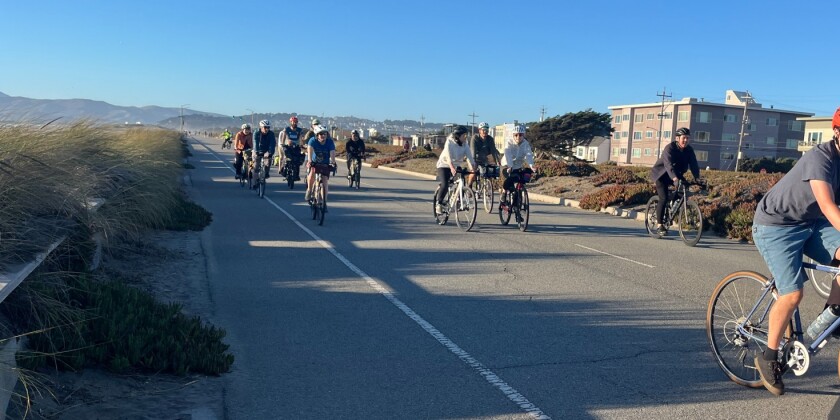Seattle Voters Ready to Reject Yet Another Mayor: Running for re-election, Seattle Mayor Bruce Harrell touts “historic investments” in affordable housing, “nation-leading climate legislation” and continuing efforts to make Seattle a welcoming city for immigrants and minority communities. In short, he sounds pretty much like a standard-issue Democrat.
But because he has taken a tough stand on crime and homelessness, he sounds too much like President Donald Trump to suit the tastes of many voters in his famously progressive city. “Trump’s election in November changed the entire psychological complexion of the electorate in Seattle,” says Sandeep Kaushik, a political consultant in the city. “There’s been an anti-incumbent sentiment that has taken root.”
In the Aug. 5 primary, Harrell lost to transit advocate Katie Wilson, 51 to 41 percent. Wilson, who has led local campaigns on issues such as renter protections and minimum wage increases, has caught the public’s imagination with a highly progressive platform centered on the cost of living. For example, her video about why a slice of pizza costs $8 (attributing this to high property costs) gained considerable traction.
“Katie has done a really good job of tapping into that frustration Seattleites are feeling around affordability,” Kaushik says.
Harrell once looked like a sure bet for re-election, winning institutional support from progressive labor unions as well as the business community. He’s gotten the wake-up call from primary voters ahead of November’s general election and has been campaigning more visibly and extensively. Still, it’s not clear he’ll be able to retool his message in time. His attacks on Wilson have mainly sounded like warnings against “defund the police” and other slogans of the past, rather than addressing voters’ concerns about the present and future.
“I don’t think anyone would accuse Harrell of being anything like Trump as a candidate or a person, but I think it’s the combination of national sentiment and local frustration that’s really causing Harrell’s struggles at the polls,” says Patrick Schoettmer, a political scientist at Seattle University.
Big-city mayors in general have been having a rough time winning re-election in the post-pandemic period, with the mayors of Pittsburgh; St. Louis, Mo.; Omaha, Neb.; and San Francisco all losing their jobs in recent months. Seattle voters are particularly difficult to please: The city hasn’t re-elected a mayor since 2005.
It’s not looking like Harrell will end that long losing streak.
“The pace of change here has been torrid — economic change, cultural change and to some extent demographic change,” Kaushik says. “We’ve become a global tech hub, which has generated enormous amounts of wealth and affluence but has also created lots and lots and lots of problems that the city has struggled to ameliorate, including traffic, quality of life and enormously exacerbated inequality.”

(Courtesy of San Francisco Bicycle Coalition)
NIMBY by the Beach: Over the past three years, voters in San Francisco have recalled the district attorney and three members of the school board. Having acquired a taste for throwing people out of office mid-term, they’re now passing judgment on a county supervisor. His crime? Pushing for a major new park.
During the pandemic, San Francisco closed its Great Highway to vehicle traffic. The Great Highway is a two-mile stretch of road that runs right alongside the Pacific Ocean and has turned out to be a welcome place for biking, jogging and other forms of recreation. After a year, the road was reopened to cars during the week but remained a park on weekends.
Last November, voters approved a citywide ballot measure to make the Great Highway’s conversion to a park full-time and permanent. Although the measure won majority support, it was unpopular in the neighborhoods close to the ocean, who’d already experienced increased traffic along other roads due to the weekend closures.
The measure was pushed by Supervisor Joel Engardio, who represents those western neighborhoods and is now the target of a recall election. (San Francisco is both a city and county and the Board of Supervisors is its de facto city council.) There’s some irony in this. Engardio led the recall of the school board members and favored the recall of District Attorney Chesa Boudin.
But the bigger irony is around the shifting cast of players involved in this latest recall effort. During those earlier campaigns, progressives loudly complained that big money interests were manipulating the process for their own ends. Now, it’s San Francisco progressives themselves who are helping to run the campaign against Engardio. His defeat could tilt the balance of the Board of Supervisors, at least temporarily, away from the comparative moderates who have supported the agenda of Mayor Daniel Lurie.
“They’re motivated by the power politics of this,” says Jason McDaniel, a political scientist at San Francisco State University. “Progressives will be quite gleeful about this one, if it succeeds.”
Lurie, who opposed the ballot measure shutting down the Great Highway, has been silent about the recall, despite Engardio being an ally. He’s apparently seeing no upside in defending Engardio on an issue that has made him so unpopular in the western part of the city.
It’s possible that Engardio will survive but the timing of the recall works against him. Not only is the election happening during an off-year, but it’s on an unusual date — Sept. 16 — with nothing else on the ballot. “The people who are going to vote on this issue,” McDaniel says, “are going to be the ones who didn’t like this decision.”









